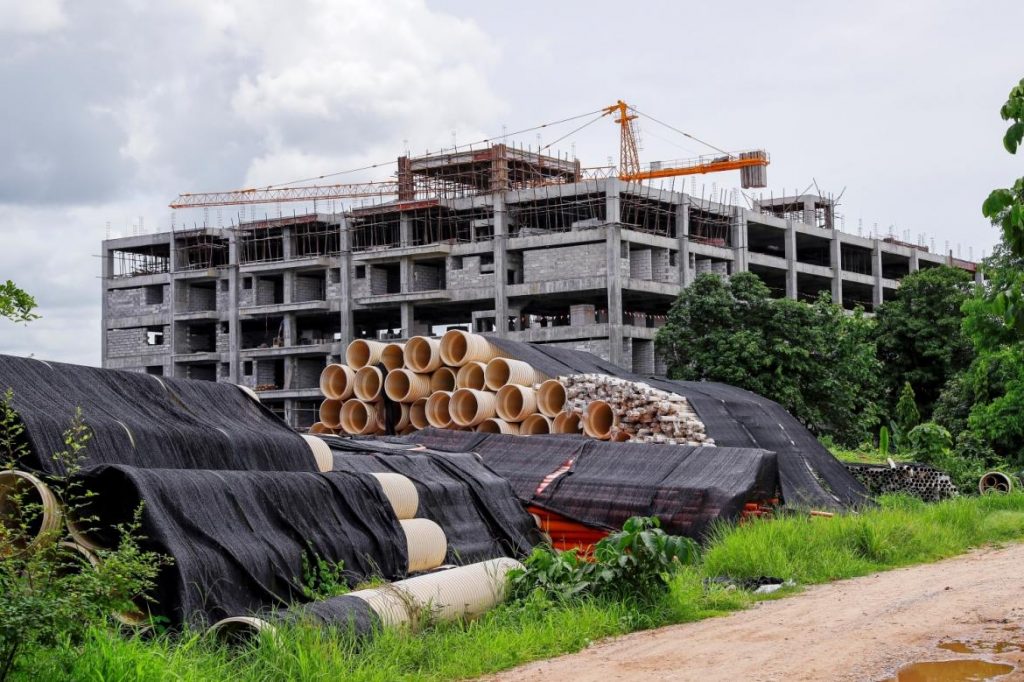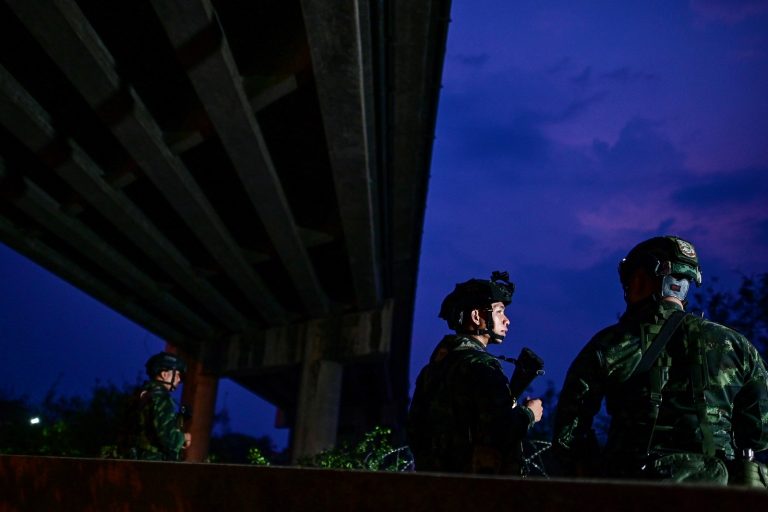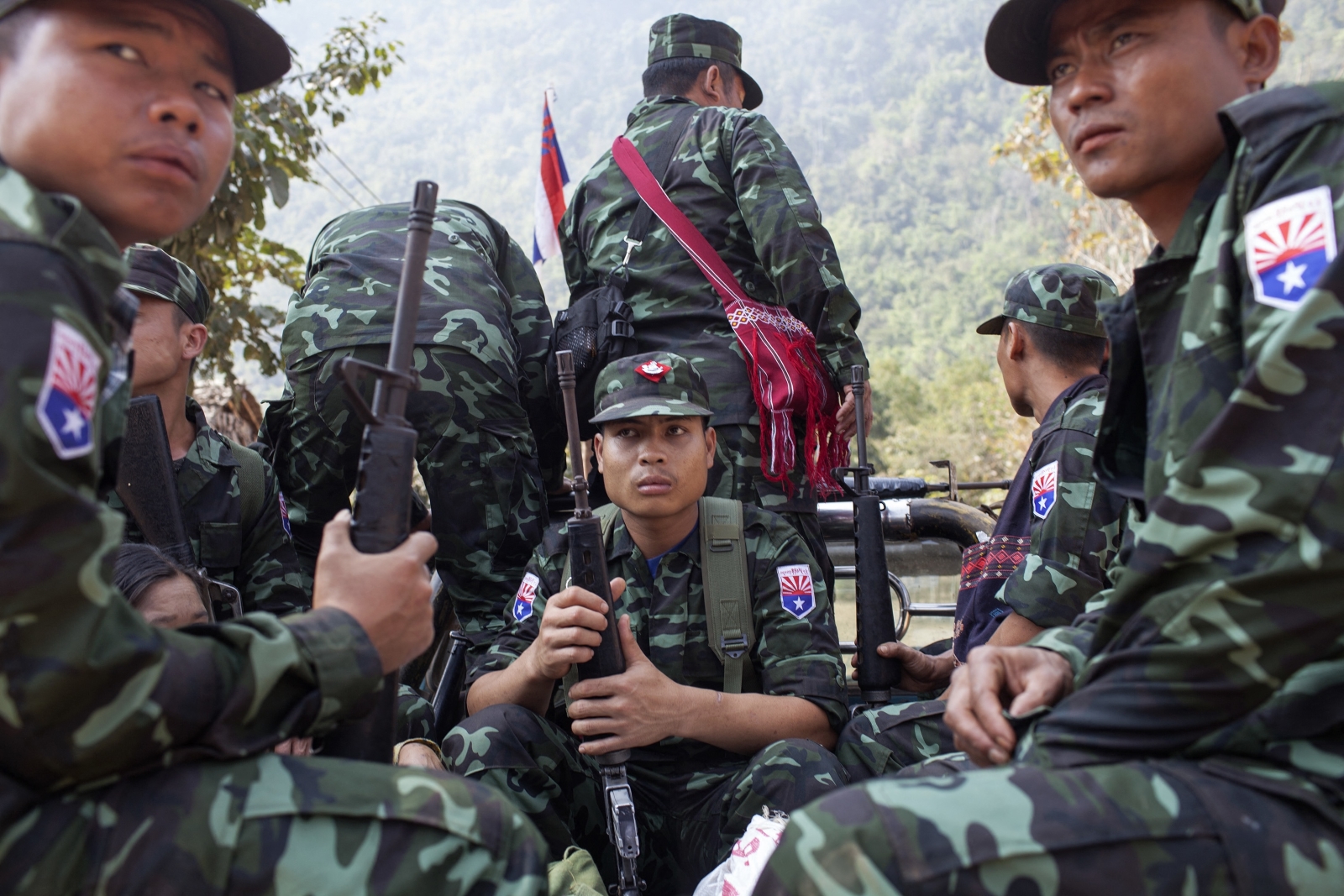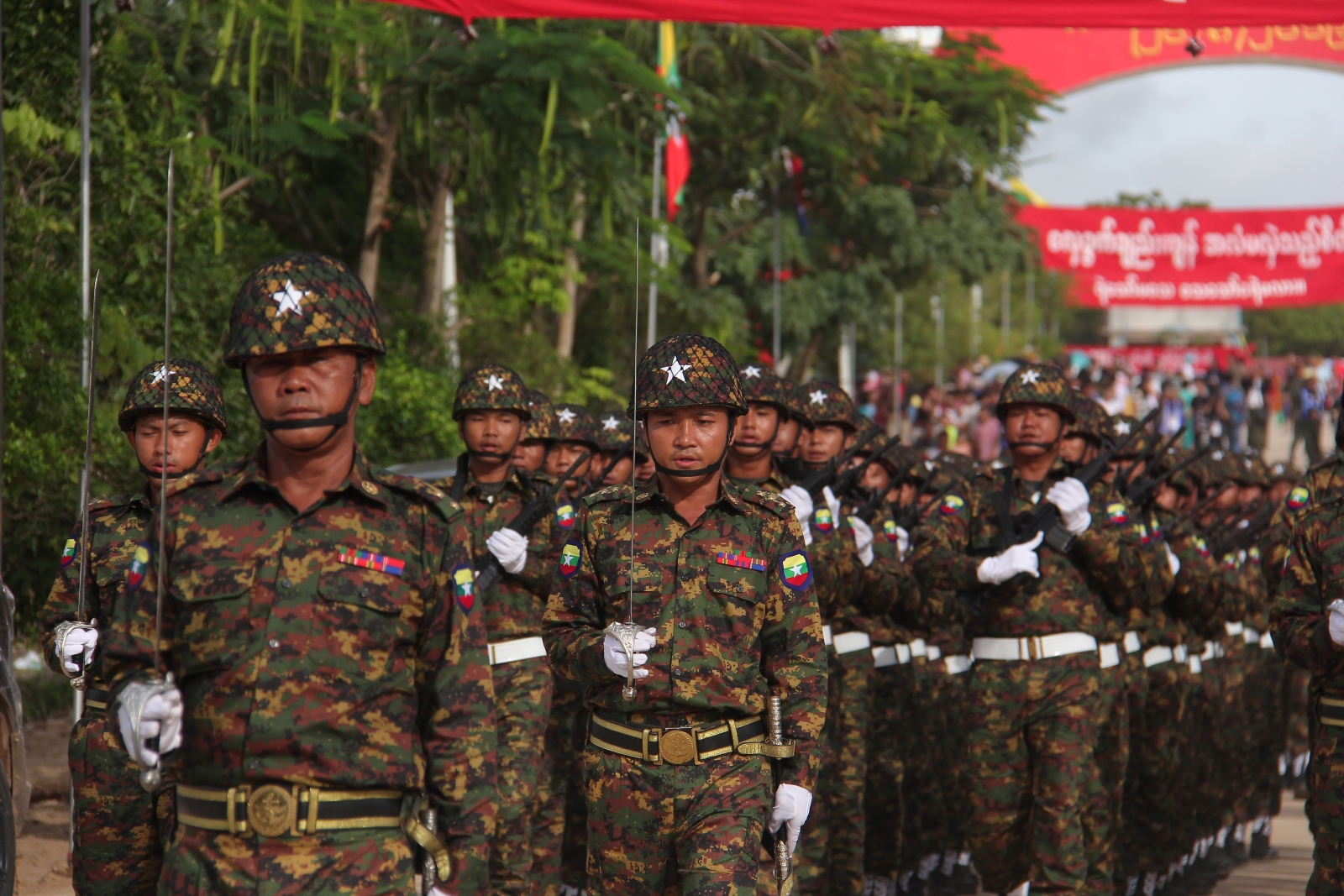It’s important to distinguish between China and overseas ethnic Chinese when discussing three controversial projects in Kayin State, despite claims they are being implemented as part of the Belt and Road Initiative.
By YUN SUN | FRONTIER
Since 2019, the narrative about private Chinese investment in Myanmar’s illicit economy, especially casinos and online gambling in Kayin State, has become increasingly rampant, holding China responsible for the audacity of private Chinese investors.
However, a careful examination of the identity of the investors, their business background and registrations, as well as the management structure and funding sources of their operations, reveals a different reality: that these investments involve overseas ethnic Chinese through companies registered in Hong Kong with funding from outside China. Despite their efforts to paint their projects as part of China’s Belt and Road Initiative, the investments are outside China’s jurisdiction and China should not be held accountable for their existence. Nevertheless, China should be wary of the damage that these projects pose to its national interests. It should distance itself from the projects and where possible take measures to oppose them.
Since 2019, three allegedly private Chinese investment projects in Kayin State’s Myawaddy Township have captured the attention – and imagination – of many Myanmar observers. The first and the most sensational is the Yatai New City Project at Shwe Kokko. More recently, the Saixigang Industrial Zone Project and the Huanya International City Project have emerged.
Despite their grandiose mission statements about tourism and industrial development, it is widely agreed that they are actually casino resorts and will host online gambling scam operations that primarily target Chinese users. These projects are the latest chapter of the broader spread of casinos and online gambling schemes throughout Southeast Asia, which came to Myanmar partially because of a government crackdown on such operations in Cambodia in 2019.
The concerns over these projects are real and justified. Not only do they disturb the local economy, society and population, they also create independent fiefdoms in collaboration with the Tatmadaw and local ethnic armed groups outside the civilian government’s purview, thereby undermining the political reconciliation process. The alleged involvement of organised crime networks is also likely to aggravate the daunting challenges the country already faces.
The central aspect of the problems associated with these projects is China. The owners of these projects have been termed “Chinese enterprises”, their financing “private Chinese investment” and the criminal networks “Chinese mafia”. Although these investments are usually distinguished from official Chinese activities as “private” or “unofficial”, the implication remains clear: that these activities have the Chinese government’s approval, endorsement, and support, either explicitly or implicitly.
This perception is further reinforced by the involvement of Chinese actors, including quasi-government entities and state-owned enterprises. The combined picture raises critical questions about China’s intention in allowing these shady operations to take place, since even private Chinese activities are subject to the official review and approval process. Many worry that China is using these private actors and channels to extend its influence over Myanmar beyond its traditional sphere of influence in northern Myanmar.
Are they from China?
These narratives are based on one assumption: that these projects are from China and approved by the Chinese government. They look Chinese. After all, “Yatai” (亚太), “Saixigang” (塞西港), and “Huanya” (环亚) are all Chinese terms using Chinese characters. And the key investors, such as She Lunkai (佘伦凯) and Wan Kuok-koi (尹国驹), are ethnic Chinese with Chinese names. Their companies and project construction sites widely use the Chinese language as well. Yatai New City Project at Shwe Kokko even claims to be a component of a “China-Myanmar-Thai Economic Corridor” under the BRI, although in reality all references to the corridor have come from Yatai and there is no acknowledgement of its existence by the Chinese government.
A little more digging reveals a vastly different picture. Firstly, the investors are ethnic Chinese but are not under the Chinese government’s jurisdiction because they live outside China. The chairman of Yatai International Holdings Group, Mr She Lunkai, was born in China but is a permanent resident of Cambodia and is consistently identified by Yatai as a “Cambodian overseas Chinese” (柬埔寨华侨). The chairman of Dongmei Group, the key investor of Saixigang, Wan Kuok-koi, is a Macau resident with a Macau passport. Both the alleged president and co-founder of Dongmei, Datuk Abdul Shakor and Dr Mashitah Binti Ibrahim, are Malaysian. The Huanya International Holdings Group, meanwhile, was reportedly established by overseas Chinese in Thailand.
The identity and location of the key business players are highly important because they determine the jurisdiction to which they are subject. Chinese criminal and civil law follow the principle of territoriality and do not apply to ethnic Chinese outside the Chinese border. Chinese criminal law has a supplementary application on the nationality principle, which enables criminal prosecution of Chinese nationals outside China – but only if requested by foreign authorities. Hong Kong, Macau, and Taiwan are legally seen as Chinese territory but in practice defined as “outside the Chinese border” because they are separate customs regions and not within Beijing’s jurisdiction. Given that She Lunkai, Wan Kuok-koi, the Malaysian partners and Thai overseas Chinese are all “outside the Chinese border”, the Chinese government has no jurisdiction over them.
What’s more important is the registration location of their companies. The principle of territoriality also dictates that companies are subject to the jurisdiction in which they are registered and operate (in these cases, Myanmar). Yatai is registered in Hong Kong and headquartered in Bangkok. Although Dongmei and Huanya’s registrations are obscure, they could both be found in the Hong Kong business registry. None of the three companies can be found in the business registration system in mainland China.
Being registered in Hong Kong means these companies’ activities operate outside the jurisdiction of China due to Hong Kong’s autonomous status and it being a separate customs region. One of the most important benefits of registering a business in Hong Kong is the free flow of capital. Whereas companies in mainland China have to obtain government approval to acquire foreign currency and transfer funds to invest overseas, companies registered in Hong Kong are not subject to such scrutiny or restrictions. That is partly why in Myanmar’s official foreign direct investment statistics, China, Hong Kong, and Macau are listed separately to distinguish investments from the three different sources. There may be a question of informal Chinese influence, but it does not qualify these investments as Chinese.
Furthermore, among all the references to Yatai, Dongmei and Huanya, there is no indication of Chinese government involvement in their management or project financing. It seems clear that She Lunkai’s wealth came from Yatai’s operations in the Philippines and Cambodia. Wan Kuok-koi made his fortune in Cambodia, the Philippines, and Thailand. The significance of this is that if their financing in Kayin came from their operations in other Southeast Asian countries, nowhere in the process could China control their decision-making, approval, movement, or operations. These projects are not private Chinese investments.
What is China’s involvement?
Yatai and Dongmei Group both claim their projects are part of the BRI and boast relations with Chinese entities as supporting evidence. In the case of Dongmei, one of its claims is that China Railway 21st Bureau Group Co Ltd will join Dongmei for a CNY330 million (US$46.5 million) investment in Saixigang. This single standalone claim from Dongmei is not substantiated by any other source, including from China Railway 21st Bureau.
In comparison, Yatai has more substantive linkages to Chinese entities in China, primarily in two categories: quasi-government civil society organisations and stated-owned enterprises. There is no evidence that Yatai has any direct relationship with any official Chinese government agency. However, it does have ties with three quasi-government entities: China Center for International Economic Exchanges (CCIEE, a think tank registered with the Ministry of Civil Affairs as a civil society organisation), China Federation of Overseas Chinese Entrepreneurs (CFOCE, a nonprofit civil society group), and the “News Outlet of the Chinese People’s Political Consultative Conference”, an online outlet of the CPPCC’s newspaper. CFOCE, of which She Lunkai is the vice chair, and the CPPCC outlet have done abundant public relations work to promote Yatai New City. A consulting company under CCIEE is said to have formed a partnership with Yatai in 2019 to provide strategic advice.
However, these relationships deserve careful examination. Needless to say, CFOCE, CPPCC, and CCIEE all have parent agencies in the Chinese government, but they are not part of the government. CFOCE and CPPCC are both “United Front” entities, whose mission is to neutralise foreign opposition and promote China-friendly voices. The PR work they have provided for Yatai is aimed at promoting the image of successful overseas Chinese entrepreneurs and their contribution to local economies, and rallying support for China as an ancestral homeland among ethnic Chinese. This symbolic and informational PR work does not constitute material contribution. Yatai’s relationship with the consulting company under CCIEE is even less about support but more about the consulting service that the for-profit Chinese company provides. CCIEE, the parent organisation, has not made any public endorsement of Yatai and its project in Kayin State.
In terms of SOEs, Yatai reached a strategic agreement with China Railway 20th Bureau Group in April 2019. Despite the claim that the two sides will cooperate on infrastructure and transportation development, no specific contract or content has been developed. Another Chinese SOE, MCC International, is the only one to have signed a contract with Yatai (in 2017 to build the Yatai project as the main contractor). This is another example of service contracts Yatai purchased from for-profit Chinese companies. It is well known that Chinese SOEs have been searching overseas markets for buyers of their construction services. The contract with Yatai could be an indication of poor due diligence but not of Chinese official support.
Links to organised crime?
Among the three projects, Dongmei Group, investor in the Saixigang Industrial Zone, is the only one identified as having links to Chinese criminal networks. Wan Kuok-koi, the chairman of Dongmei Group, is a former head of Macau’s 14K organised criminal gang, or triad. Known as “Broken Tooth”, Wan Kuok-koi was released from prison in Macau in December 2012 after serving nearly 15 years for offences committed as the enforcer of 14K.
However, to associate his business in Kayin with a “Chinese criminal network” gravely mischaracterises two points. First, according to the territoriality principle of Chinese criminal law, organised criminal networks in Hong Kong and Macau are distinct from their counterparts in China as the former two cities are considered “outside the Chinese border”. In Interpol’s China office, there are two sub-bureaus responsible for Hong Kong and Macau and they operate separately to the bureau responsible for mainland China. Although Wan was a member of a Macau mafia, it is wrong to equate that to “Chinese criminal networks”.
Secondly, Wan’s old gangster identity does not define his current business as a criminal organisation. By the time he was released from prison in 2012, Macau had been returned to China for 13 years and the city’s mafia landscape had completely changed. Since his release there have been reports about his new businesses in cryptocurrency but there is not yet new evidence that he has returned to organised crime networks for a living or for his overseas investment. Wan remains a member of Hongmen (Tiandihui), a fraternal organisation that emerged in China during the Qing dynasty (1644-1912). The organisation is not only legal in Southeast Asia, it is particularly politically influential in Taiwan. To term Wan’s businesses as being linked to organised crime because of his 14K role in Macau before it returned to China requires substantiation with current evidence.
What is China’s responsibility?
The identity, registration location and funding sources of the three so-called “private Chinese investment” projects in Kayin State makes clear that they are not from China or subject to China’s jurisdiction. As entities registered in Hong Kong and operating in Myanmar (a sovereign nation), they operate beyond the reach of China’s official approval, supervision, and management systems.
However, even if China does not endorse the projects, much less provide support for them, it should not be let off for at least two inexcusable failures. First, Chinese entities, both quasi-government organisations and state-owned enterprises, have failed in their due diligence to correctly identify the nature of these businesses and their background in Southeast Asia.
The Chinese government has assiduously tried to press Southeast Asian governments to ban China-centric casinos and online gambling scams, producing agreement from Cambodia and rejection from the Philippines. The public security apparatus in China has long been chasing after online gambling businesses because of the financial losses and social instability they cause in China. However, the Chinese entities concerned have evidently either been ignorant or selectively blind to the criminal implications and the opposition from the Chinese government. Some are driven by profits, others by the desire to use these overseas Chinese to boost China’s BRI.
A bigger problem is that China has failed miserably to disassociate itself from shady or illicit business activities by overseas Chinese individuals and entities that claim without exception to represent China and BRI. The overzealous United Front organisations are too eager to create positive publicity and success stories about overseas Chinese embracing BRI in Southeast Asia. However, for all the credit they think they are taking, they are also entrapping China with the liabilities by association. While China thinks it is harnessing these overseas Chinese to serve its political purposes, these overseas Chinese are actually using China to enhance perceptions of their political and economic backing in Southeast Asia, where such support has significant currency.
However, the responsibility that China has to carry for these failures is not as a culprit. To misattribute what happens in Kayin to “private Chinese investment” is not pointing at the right problem and will not lead to the right answer.
Collective efforts should be made to halt illicit business activities and will require cooperation among Southeast Asian states and law enforcement authorities in China, Hong Kong, and Macau.
China should take actions to correct the misinformation, distance itself from these operations and play an active role in opposing them. Projects such as those that have recently emerged in Kayin State will not only create more trouble for China domestically but also damage China’s role and interests in Myanmar in an era of enhanced strategic rivalry in the region.







